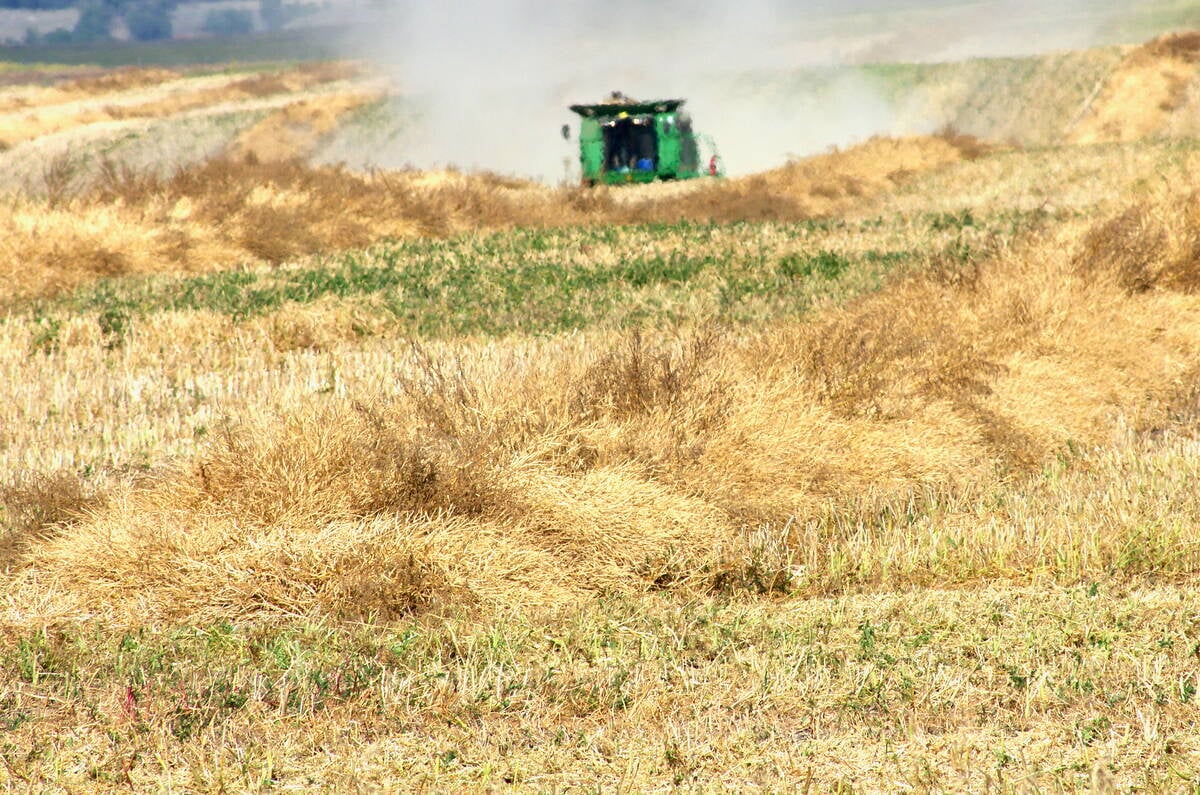BRUSSELS, Belgium — Entering year three, Canada-European Union free trade talks still face a number of sensitive unresolved issues, many agricultural, which make promises of a 2012 deal far from a sure thing.
And while many sectoral interests from both sides of the table are making the talks difficult, European demands that Canada dismantle some of its dairy import protections remain at the heart of the dispute.
The European dairy processing industry is telling European Union negotiators that any free trade deal with Canada must include a loosening of import restrictions or it should not be signed.
Read Also

Manitoba searches for Plan B on canola oil exports
A new report explores Manitoba’s current canola oil trade and possible alternative markets to the U.S.
“From the EDA (European Dairy Association) point of view, it would be useless without dairy access,” EDA trade and economic policies director Bénédicte Masure said in an interview last week.
Added EDA secretary general Joop Kleibeuker about industry reaction if their demands are not met: “We would have no veto but I have the impression from the commission that for them too, a breakthrough especially on supply management is essential to have a deal.”
The processors have support from Europe’s dairy farmers, who have seen their own supply management system weakened and the industry adapt to market conditions.
“Farmers, if not aggressively in favour of it, understand the processing industry priorities and agree that more markets for their products mean more sales and prices for us,” European farmer organization COPA secretary general Pekko Pesonen said in a Dec. 14 interview.
Sources from both sides of the issue confirm that European negotiators are arguing if Canada’s beef and grain sectors want any EU move on their access demands, Canada will have to bend on dairy.
“I just don’t think they are close,” an observer with inside knowledge said last week.
Officially, the story from both sides is far more optimistic.
Canadian trade minister Ed Fast continues to say the goal is to wrap up a deal in 2012, although it was supposed to have happened in 2011. He says he is confident it can be done with a potential $12 billion boon for the Canadian economy. Canadian agricultural exporters strongly support a deal and hope he is right.
“I do think a deal is possible in the next six months,” said Kathleen Sullivan, executive director of the Canadian Agri-Food Trade Alliance, who was in Brussels recently. “If it stretches out too long, it gets less likely or less ambitious.”
She suggested dairy access is less of a bottom line issue for the EU than stopping food companies including dairy from using European place name brands to identify their products — the geographic indicator issue.
“But I do think they will have to get some dairy access concession to sell it back home.”
Canadian agriculture negotiator Gilles Gauthier reflects the same optimistic tone.
“I think the way we are heading, there is a very good prospect for a full and robust agreement,” he told a recent Canada Grains Council meeting.
EU politicians echo the same optimistic tone. But sources familiar with the negotiations suggest a deal anytime soon is far from guaranteed, if not unlikely, and many agricultural issues are among the core potential blockers.
Canada’s hope for more meaningful meat and grain access is receiving pushback from the Europeans, although for the first time in a bilateral negotiation, the EU has offered some small access improvements for hormone-free beef as an initial position.
But Canada’s open border with the United States and rules of origin for Canadian beef coming to Europe are problems at the negotiations.
“We don’t want to do a deal with Canada that in effect gives preferential access to the U.S.,” a European official is reported to have told Canadians.
The EU is insisting that Canada be able to prove beef coming into Europe is largely of Canadian origin, as well as hormone-free.
There is no European movement on allowing genetically modified grain or oilseed products into the EU, although outside the negotiation, the European Commission is promising to work on a low-level tolerance policy for inadvertent GMO presence in feed shipments.
It is as much in reaction to European farmer complaints about disrupted feed imports as it is to satisfy trader complaints.
To add even more complexity, Europeans insist Canadian producers have an advantage because North American environmental demands on production practices are more relaxed than rules within the EU.
In their minds, Canada’s recent reluctance to make firm commitments during a recent climate change conference in Durban, South Africa, illustrates the point.
Despite the official optimism, Canada-EU negotiations are a stew of complex issues, conflicting interests and complaints from both sides about protectionism to satisfy domestic interests.














